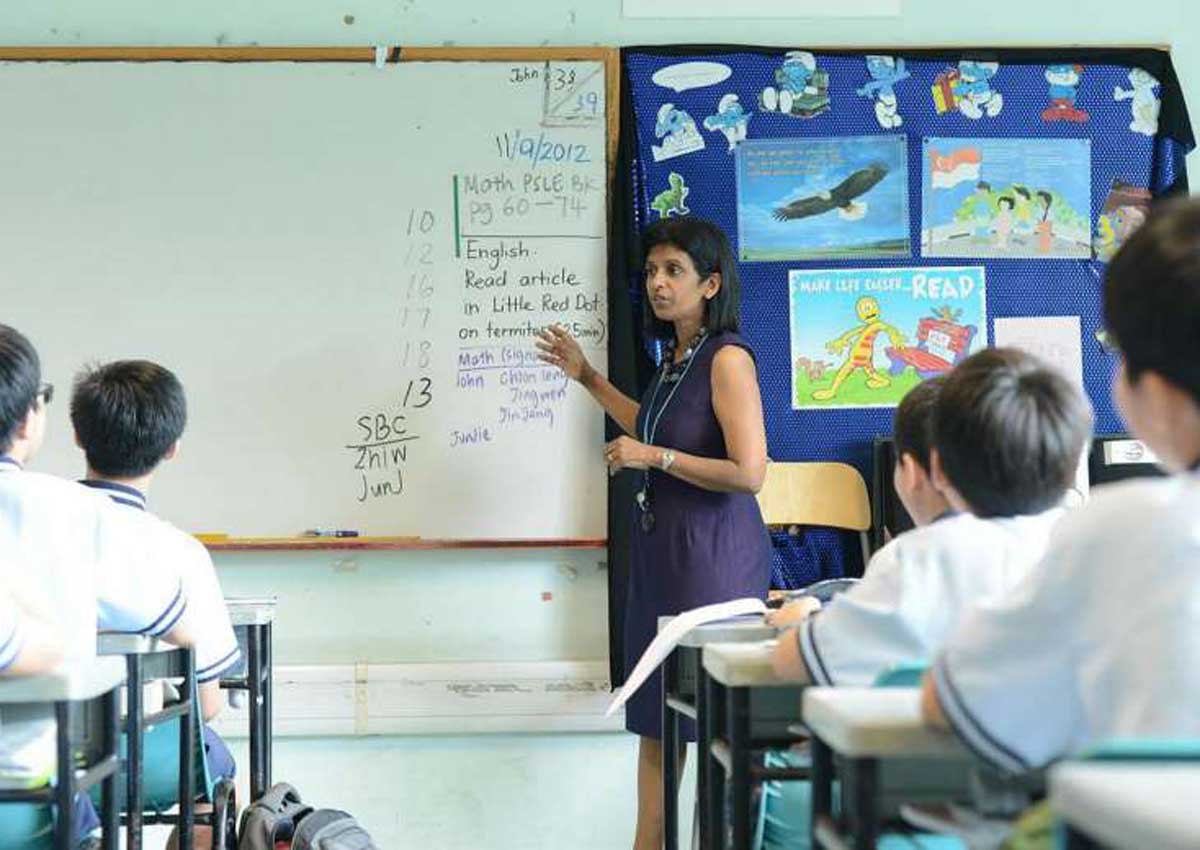Teaching is undoubtedly a demanding job, but there are ways to manage the increasing workload to prevent burnout, said educators.
The workload varies across schools as it depends largely on the school leaders’ approach in managing staff and students, they added.
Teaching today is not the same as it was in the past – there are higher expectations and additional sources of stress, from taking on more roles outside the classroom to being “on call” after school hours, said current and former teachers.
But figures from the Ministry of Education (MOE) show that the attrition rate of teachers has “remained low at around 3 per cent” in the last five years.
Earlier this month, The Straits Times reported that about 5,000 teachers had quit over the last five years.
The top three reasons cited by MOE for these resignations were “for childcare, other family considerations and a desire for a change of job”.
Yet, many educators stay in the job for a long time, and the size of the teaching force has remained stable at more than 33,000.
Mr David Leong, managing director of human resource firm People Worldwide Consulting, said the 3 per cent resignation rate of teachers is “low compared to other sectors”. On average, a company could have a yearly attrition rate of 10 per cent, he added.
He also noted that the teaching profession is quite “stable”. “Whatever happens, teachers are not affected by a slowing economy – that is a huge perk.”
Still, over the last few weeks many concerned Singaporeans have come forward to say that more can be done to retain teachers.
More than 10 letters were published in The Straits Times’ Forum page this month, calling for teachers to be given more rest and respect, and their administrative load and working hours to be reduced.
Madam Zann Lim, who has a daughter in Primary 5, felt that MOE should outsource programmes such as camps and co-curricular activities to people trained in these areas.
“Teachers are not trained primarily to plan these activities, and they shouldn’t be too burdened by them,” said the 40-year-old finance professional.
Mr Mike Thiruman, president of the Singapore Teachers’ Union, said: “Teachers, like the rest of us, are only human.
That they play an often understated and unappreciated role cannot be an excuse to deprive them of the rest and respect that they deserve.”
More can be done to strengthen the teaching profession, he added.
When contacted, MOE said that it values teachers’ hard work and contributions. “We are committed to work with schools to help teachers better manage their workload.”
A spokesman said that it has “enhanced manpower support to schools” over the years.
On average, each mainstream primary and secondary school had 14 more teachers last year compared with 2005.
Today, there are also more than 2,100 allied educators and education and career guidance counsellors across schools.
This group of people support teachers in counselling work or helping students with behavioural needs, for instance.
MOE introduced student welfare officers last year, to help students with tough family backgrounds, and plans to hire more allied educators to cater to those with special needs.
Teachers told The Sunday Times that school leadership plays an important role in shaping the work culture.
A secondary school teacher of about 10 years said: “Selection of school leaders is crucial as some have different priorities, and they change every four to five years. For my school, you must be able to teach well first, then they look at the other roles you play.
“Some other schools might focus on community work… The worst combination is having a demanding principal who breathes down the neck of heads of departments, and if these HODs don’t communicate and split the jobs equally… you might end up being overloaded,” said the 33-year-old.
Ms Wang Ai Pei, a Hougang Primary School teacher, said: “During term time, we do work extremely hard, and there are days we are tired because of the long hours.
“But there are also good days – simple things make my day, like a well-done two-page composition by a pupil who handed in one with just eight sentences before.”
A 27-year-old secondary school teacher said having a senior teacher as a mentor helped in his first year.
“We met once a semester to talk about how I can improve my teaching and if I had any concerns.”
He added that schools also allow teachers in their first year to take on three-quarters of the full load of teaching time – provided they are not short-handed.
Some teachers said they learnt to pace themselves with more experience, and take advantage of perks such as school holidays and marking assignments in their own time.
Said the 33-year-old teacher: “It’s give and take – there are days when I can leave at 1.30pm if classes end earlier… It’s not so bad all the time if you are clever enough to manage your time well and fortunate to be in a good environment.”
Ultimately, educators said that teaching is more than a job – for some it is a calling.
Said Ms Wang, who has taught for about 19 years: “Our returns come in the relationships forged with students and watching them grow.
“I have ex-students in university now who come back to visit me. It’s a rewarding process.”

This article was first published on Oct 23, 2016.
Get a copy of The Straits Times or go to straitstimes.com for more stories.






